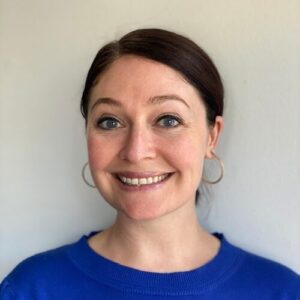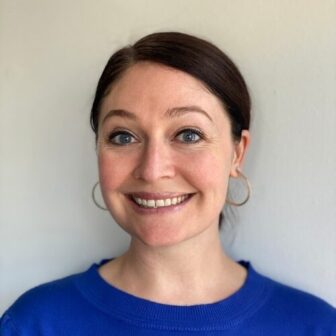Programs in Building Community
Stanford African Scholars in Global Health Program (SASH)
A new initiative to promote health equity, capacity-strengthening, and unique focused learning between African medical institutions and Stanford.
*Photo credit: pexels.com
About the Program
*Thank you to everyone who applied for our first two cohorts! The window to apply closed Feb. 25, 2024. Please join our list-serv below to be notified when we open the next application cycle.*
This three-year program supports 24 mid-career physicians from African countries to travel to Stanford for a six-week period of time, gaining a specific skill set identified by the African scholars as a need to improve health outcomes at their academic institution. Physicians will then return to their home countries to conduct a year-long clinical improvement project focused on the skill set they identified. This inaugural program is led by the Stanford Center for Innovation in Global Health, in partnership with the Stanford Center for Medical Education, and funded by an independent educational grant from Pfizer.
Overview
Stanford will host a total of 24 scholars across several cohorts during the 3-year program (between 2024-2027). Each fellowship consists of two phases: The first at Stanford; the second in the country of their home institution.
Phase 1
Each cohort of accepted scholars will begin their fellowship with six weeks at Stanford, where they will be appointed as Visiting Instructors. The program will be tailored to their interests and implementation project topics.
Scholars will observe in clinical settings at Stanford hospitals and clinics and engage in other learning activities, including meeting with Stanford experts and participating in lectures and simulation activities where appropriate.
Each scholar will have a Stanford Faculty mentor, who will advise and train them. To facilitate bi-directional learning, scholars will have the opportunity to earn Continuing Medical Education credit, give guest lectures and present to the Stanford community.
The scholar’s time at Stanford will foster quality improvement for their home institution, including but not limited to subspecialty knowledge, treatment and management of complex cases, and/or advanced medical technology. They will also observe different approaches to care, health systems management, and medical education, all designed to enhance the identified skillset needed at their home institution.
Phase 2
After training at Stanford, scholars will return to their academic institutions with a grant of up to $50,000 from Pfizer, provided directly to their institution, to implement their individual proposed project over the next 12-18 months. They will engage in virtual meetings with their Stanford mentors as appropriate, for continued support. CIGH will hold a final convening (likely in East Africa) in Year 3 with all scholars where they will present on the impact that their projects have achieved.
Eligibility
This program is open to licensed African physicians who are currently working as faculty at an African academic institution. Eligible applicants should be engaged in clinical care, teaching and scholarly activity that advances clinical medicine. The program is open to physicians from all specialties and primary care who seek a specific skill to improve health outcomes at their institution. However, we will prioritize those from Sub-Saharan Africa interested in the fields of antimicrobial resistance, oncology, vaccine uptake or inflammatory diseases.
To be considered, applicants must meet all the following eligibility criteria:
- Be in good standing within their institutions and demonstrate an ongoing commitment to improving health outcomes in their home countries.
- Be an African citizen* who is currently living, teaching and practicing clinically in an African country.
- Be a board-certified medical doctor with one of the following degrees: MD, MBChB or MMed.
- Be a mid-career physician, appointed as a faculty member for at least 3 and less than 15 years.
- Have strong working proficiency in written and spoken English (as determined by the selection committee).
* This program is not open to United States-licensed Healthcare Professionals
*This program is only for physicians practicing in Africa and applicants may not reside, and their home institutions may not be located in a restricted market (includes the Crimean Peninsula, Cuba, the Donbass Region, Iran, North Korea, Sudan and Syria). Applicants cannot be listed on any restricted persons and entities list maintained by the US, EU, UN or other relevant government bodies.
Timeline and Application Details
*Thank you to everyone who applied for our first two cohorts! The window to apply closed Feb. 25, 2024. Please join our list-serv below to be notified when we open the next application cycle.*
During the 2024-25 academic year, SASH Scholars will spend six weeks at Stanford (Cohort 1: January – February 2025; Cohort 2: April – May 2025), to be followed by 12-18 months of project implementation at scholars’ home institutions.
The application process for this program is two steps. The first step is the eligibility screening application, which opened February 5, 2024 (Deadline: February 25, 2024, 11:59pm PT). Applicants interested in participating in Cohorts 1 and 2 must apply by the February 25th deadline to be considered for the program during the 2024-25 academic year.
Selected applicants for both cohorts will then be invited to submit step 2 of the application, which will include more details about their proposed improvement project, implementation plan and objectives (Deadline: April 21, 2024).
Top candidates will be invited to a Zoom interview during step 2 of the application review process (April/May 2024). All shortlisted candidates will be notified whether they have been accepted into the program by the end of May 2024.
Sign up for updatesFunding Details
The program includes/provides:
- Visa costs
- Living expenses while at Stanford during Phase 1
- Honorarium for Phase 1
- Travel to and from a San Francisco regional airport, economy class roundtrip airfare for the awardee only, and associated travel costs to Stanford for Phase 1
- Up to $50,000 in grant funding from Pfizer provided directly to scholars’ academic institutions for phase 2 project implementation. These funds cannot be used to purchase capital equipment.*
*Examples of equipment include, but are not limited to: Computers, iPhones, tablets, appliances, machinery, camera equipment, sensors, facilities construction, etc.
Frequently Asked Questions
Learn more about program and eligibility details in our FAQ.
Read the FAQContact SASH

Kelsey Fisher
Program Manager, Stanford African Scholars in Global Health Program

Kelsey Fisher
Program Manager, Stanford African Scholars in Global Health Program
Kelsey Fisher serves as the Program Manager of the African Scholars in Global Health Program for Stanford’s Center for Innovation in Global Health. Kelsey returned to Stanford in December 2023, after nearly a decade managing programs to improve health equity, livelihoods and education access, with a focus in Sub-Saharan Africa. Most recently, Kelsey managed a portfolio of health systems strengthening programs at GAIA Global Health, where she managed GAIA’s scholarship and fellowship programs for nursing students and new graduates in Malawi. Before getting started in international development, Kelsey worked in Academic Services at the Stanford Graduate School of Education, where she supported faculty and curriculum planning.
Kelsey has a B.A. in Communications from California Polytechnic State University (Cal Poly, San Luis Obispo) and an M.S. in Public Administration from San Jose State. She is passionate about health equity and improving education access in hard-to-reach areas. In her free time, Kelsey loves exploring San Francisco, hiking, running, seeing live music, and spending quality time with family and friends.
Contact Us
For questions about this program, please contact the team by emailing ghscholars@stanford.edu.